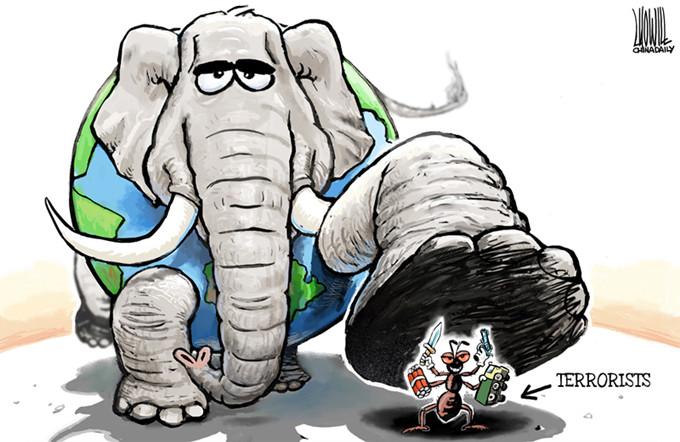Random titles won't help cities to prosper
 |
|
A man walks among conjested vehicles on a street in Qingdao, East China's Shandong province on Sept 29, 2012. [Photo/IC] |
The numbers and rumors aside, local city governments believed to be potential candidates will likely be locked in a dog-eat-dog competition, on and off the record. And their enthusiasm is understandable, because a national central city is more likely to enjoy preferential investment, trade, fiscal and land policies. As for the mayors whose cities win the title, it will be a great boost to their political careers.
Relevant departments like the Ministry of Housing and Urban-Rural Development, too, have good reason to use the "title-giving" strategy. On the one hand, it is the departments' job to bestow on cities titles such as national central city on the basis of scientific urban planning. On the other hand, the "titled" cities will be more motivated to contribute to the implementation of key national policies. That explains why some major cities are crowned by dozens of titles with different focuses, even though the title-giving approach does not necessarily lead to a win-win result.
This approach could also compromise the fairness of the tug-of-war among cities that has played an important part in China's economic rise over the past decades. Just as all enterprises have been subjected to the anti-monopoly law, local governments, too, need to play by the book. Giving some places the title of national central city or national strategic region while excluding those with similar advantages-in terms of geographical location or transport services-can never be conducive to promoting fair competition.
Some motivation is surely needed to sustain benign competition, but constantly giving titles to cities does not help much. Local government should focus on boosting growth and improving people's livelihoods. It is possible that some governments totally miss the target and seek titles for preferential treatment instead of working on specific issues.
Building national or global cities is essentially about selecting and supporting the superiors. Going by past lessons, governments should avoid intervening in the process and maintain a measured distance from industries and enterprises, because eligible candidates are not easy to find and the chosen ones are not destined to succeed.
The promotion of national central cities works the same way. That many cities are vying for the title adds to the risk of fragmenting the central government's decision-making. During the early years of the reform and opening-up, granting some cities preferential titles was necessary to help more to embrace market-oriented economy.
As for now, the focus should be shifted to protecting fair competition, combating local protectionism and enhancing regional cooperation. For example, subsidies and policy support should be offered to those remote, less developed areas. And the authorities should be extra cautious about granting excessive titles at the national level.
The author is a researcher at the Development Research Center of the State Council, China's Cabinet.
- Planning for Hebei new area is on fast track
- Urban planning bids evaluated by experts
- Closed communities: Ancient urban planning upended
- Make urban planning sustainable, visionary
- Beijing in need of proper urban planning
- Beijing prioritizes conservation in urban planning
- High-tech lends edge to urban planning
























